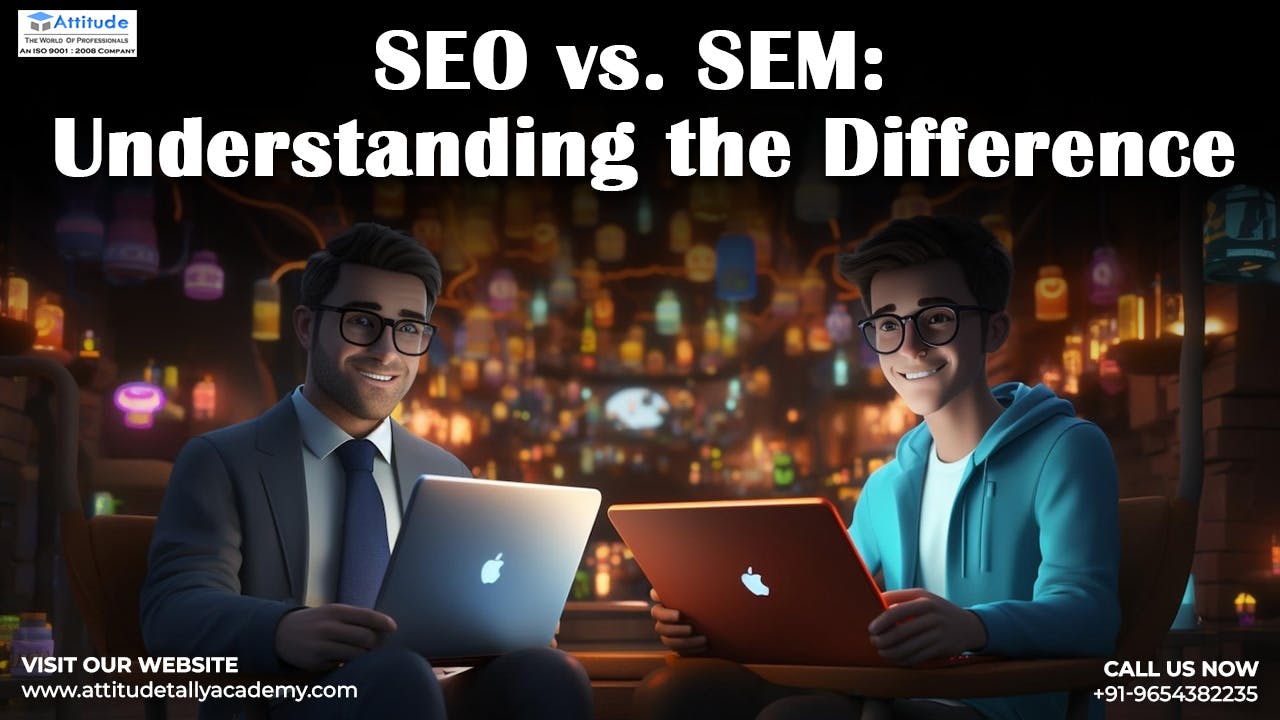SEO vs. SEM: Understanding the Difference

Introduction:
If you're stepping into the exciting world of computers and digital marketing, you've likely come across terms like SEO and SEM. These acronyms may seem confusing at first, but they're crucial to master for anyone looking to excel in this field. In this blog post, we'll break down the differences between SEO and SEM in student-friendly language, helping you understand their unique roles and importance in the digital landscape.
SEO: Search Engine Optimization
What is SEO?
Search Engine Optimization, or SEO, refers to the process of optimizing your website to rank higher on search engine results pages (SERPs) organically.
Key Aspects of SEO:
Keyword Research Tips: Identifying relevant keywords that your target audience is searching for and strategically incorporating them into your website's content.
On-page SEO Factors: Optimizing individual web pages with meta tags, headers, and quality content.
Off-page SEO Techniques: Building backlinks from reputable websites to increase your site's authority.
Content Optimization: Creating high-quality, engaging content that provides value to your audience.
Why is SEO Important?
Organic Traffic Growth: SEO helps drive organic traffic to your website, increasing visibility and brand awareness.
Cost-Effective: Unlike SEM, SEO doesn't require paid advertising, making it a cost-effective long-term strategy.
Where to Learn SEO?
Consider enrolling in a course or training centre that offers comprehensive SEO training to gain hands-on experience and expertise.
SEM: Search Engine Marketing
What is SEM?
Search Engine Marketing, or SEM, involves promoting your website through paid advertising on search engines like Google.
Key Aspects of SEM:
SEM Strategies Explained: Implementing paid advertising methods such as Pay-Per-Click (PPC) campaigns to drive targeted traffic.
Ad Budget Planning: Allocating budget effectively to maximize ROI.
Keyword Analysis: Identifying high-performing keywords to target in your ads.
Conversion Rate Optimization: Optimizing landing pages to encourage user actions and conversions.
Why is SEM Important?
Immediate Results: Unlike SEO, SEM offers immediate visibility and can generate quick results.
Targeted Advertising: SEM allows you to target specific demographics, locations, and interests, making your campaigns more effective.
Where to Learn SEM?
Look for institutes or training centres that offer specialized SEM courses to learn advanced strategies and best practices.
SEO vs. SEM: The Bottom Line
While SEO and SEM share the goal of driving traffic to your website, they use different approaches to achieve this objective. SEO focuses on organic strategies, while SEM leverages paid advertising methods. Both are essential components of a successful digital marketing strategy, and understanding their differences will help you choose the right tactics for your goals.
Whether you're interested in mastering keyword research tips or diving deep into SEM strategies, continuous learning is key. Consider investing in a comprehensive course or training centre that offers hands-on training in both SEO and SEM to equip yourself with the skills and knowledge needed to succeed in the competitive world of digital marketing.
Suggested Blogs: